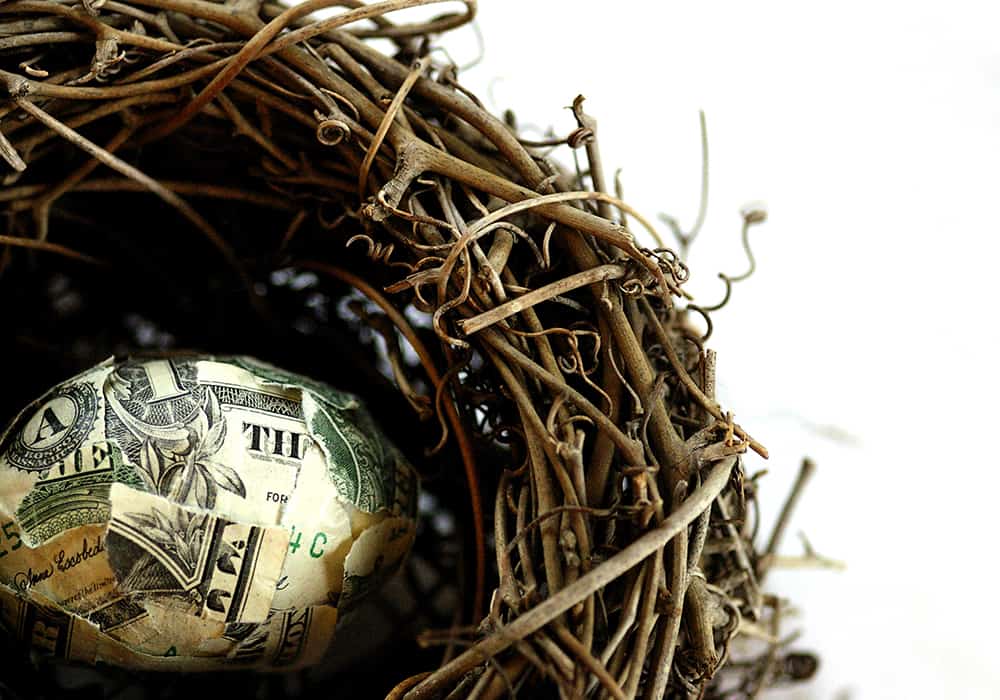Many people refer to their retirement savings as a “nest egg”. However, in theory, it should be made up of many sources of retirement income – many eggs. Even if Social Security and a 401K were their only retirement savings sources, likely they haven’t thought about their withdraw strategy. It’s not as simple as just drawing down retirement income from one or two sources without a plan. There’s a lot to be considered, like:
- Taxable vs. Tax-Free income
- How much of my money is available to spend in retirement?
- Will money need to be put aside to pay taxes?
- Are there other income streams?
- Would investment advice produce better returns, even in retirement?
- Is there a withdraw strategy that will be better for me than liquidating only from one or two sources?
When considering these, having only one or two eggs doesn’t seem like enough. As Americans, we have many options to save for retirement:
- Tax-Sheltered retirement plans like 401(k), 403(b), 457, and IRAs
- Tax-Free retirement plans like a Roth IRAs
- Employer or Government employer-funded pension plans
- Company profit sharing retirement plans
- Insurance Products: Fixed-indexed annuities, Variable annuities
- Certificates of Deposit, bonds
- Social Security
- Stocks, ETFs (exchange-traded funds), and Mutual Funds
All these types of retirement savings options have different rules on taxation and when they can withdraw without penalty. Delaying Social Security, while taking withdraws from other taxable retirement income sources, can greatly impact income. For this reason, a retirement portfolio must be adjusted and monitored, and a plan developed for withdrawing from each income source, and its taxation consequences. These make financial planning throughout retirement even more critical.
Financial planning before retirement is about accumulating assets and the future. But once retired, financial planning focuses on making the retirement nest egg last, accumulation and outpacing inflation, drawdown strategies, tax consequences, and estate planning in addition to many other things.
If you have multiple or only a few retirement ‘nest eggs,’ now is an excellent time for us to discuss how taxes will impact you this year or in the future.





